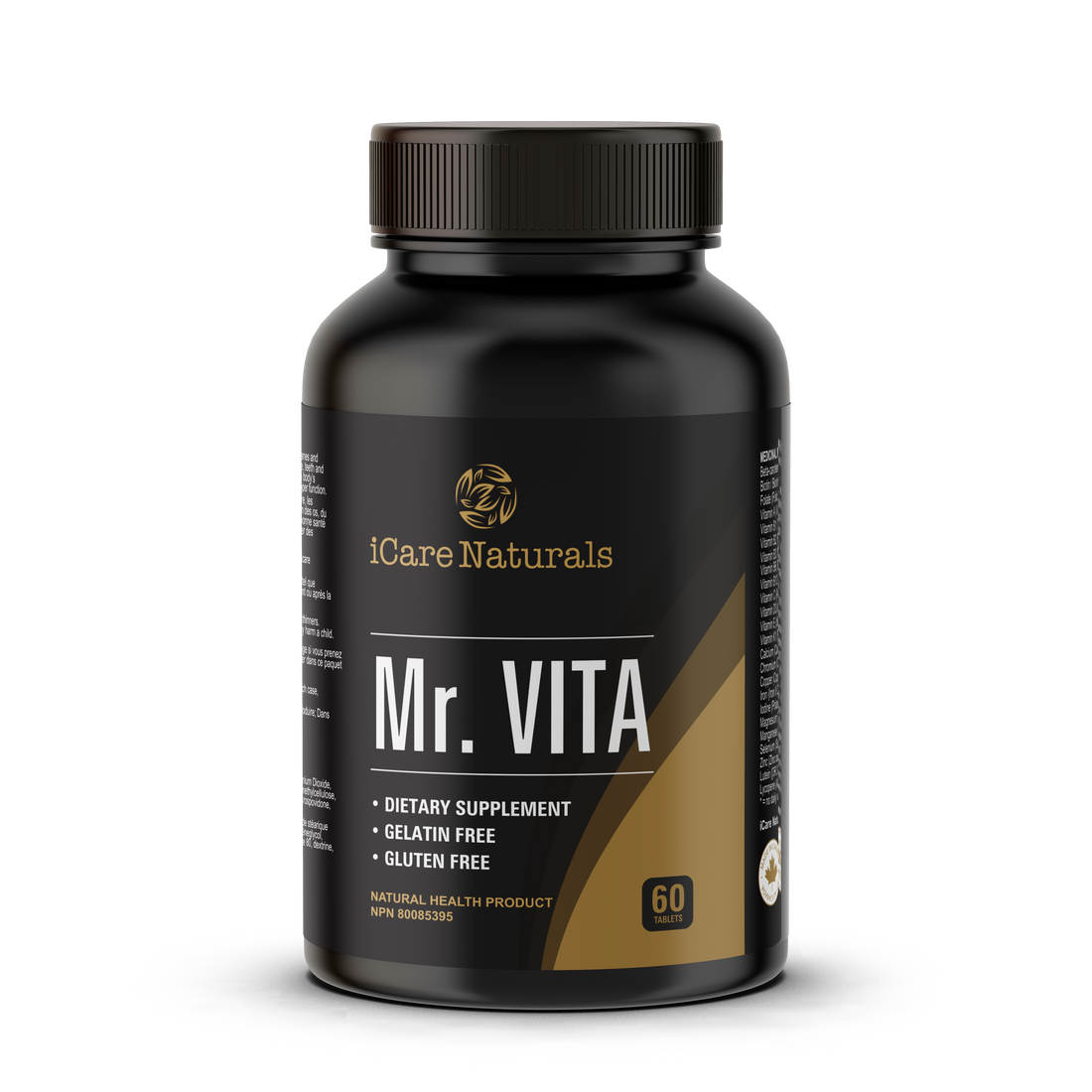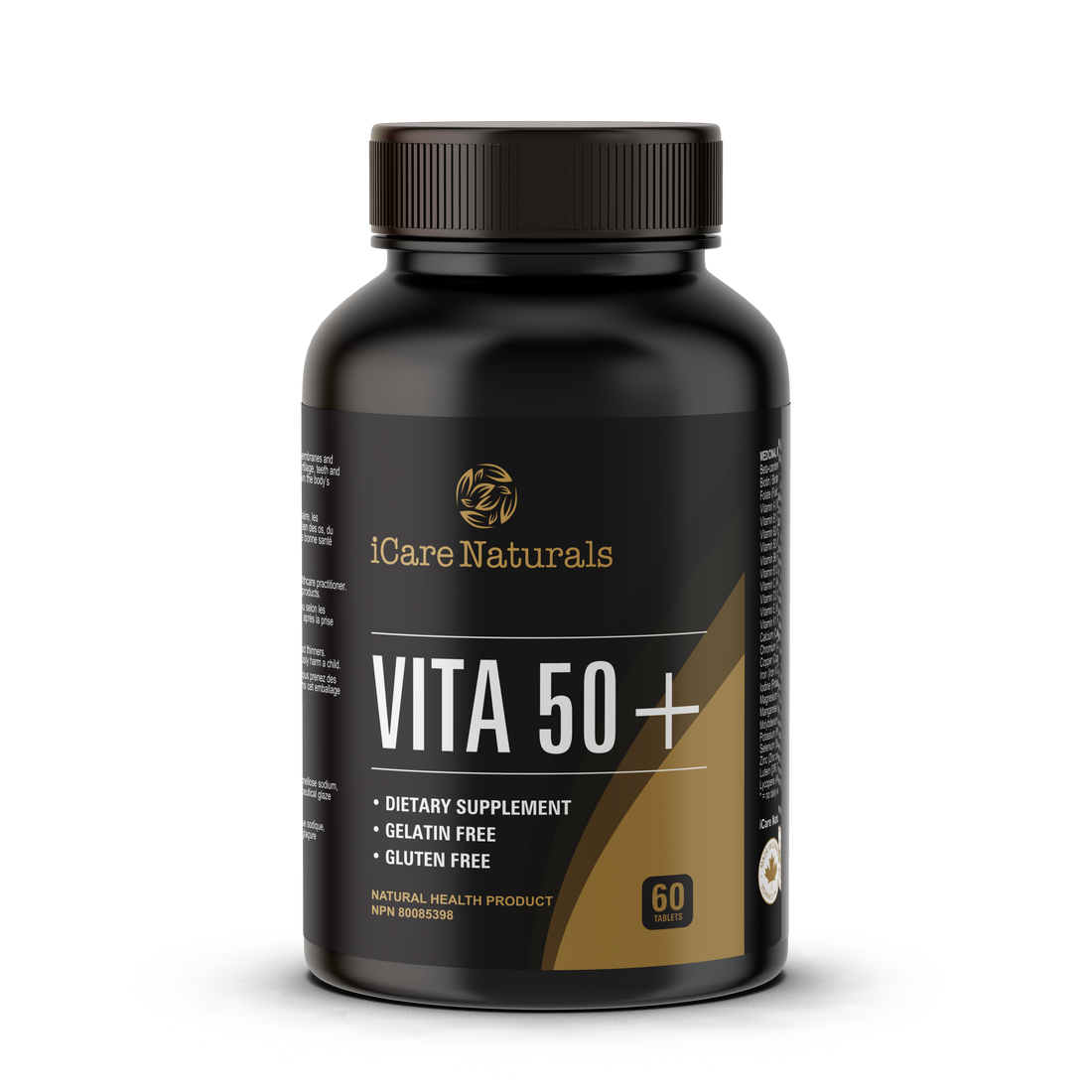If you’ve recently started taking Ozempic to manage your weight or blood sugar, you might have noticed lower energy as a side effect. Many people using Ozempic experience fatigue or weakness, especially in the first few months.
While Ozempic can be life-changing for weight loss and diabetes management, it can also affect how your body absorbs nutrients and processes energy. If you've been skipping meals or eating smaller portions since starting Ozempic, your body might not be getting enough essential vitamins to stay energised and strong. The good news is that with the proper nutritional support, you can restore your energy and continue feeling your best while on Ozempic..
Key Findings
- Fatigue on Ozempic often stems from nutrient gaps, not the medication itself, as reduced appetite and slower digestion can limit absorption of primary vitamins.
- Prioritising vitamins B12, D, iron, magnesium, and C helps restore energy, support metabolism, and prevent fatigue while on Ozempic.
- Balanced meals, proper hydration, and doctor-guided supplements are essential to maintaining energy and overall wellness during Ozempic treatment.
Why Does Ozempic Sometimes Make You Feel Tired Or Low On Energy?
Ozempic works by mimicking a hormone called GLP-1 (glucagon-like peptide-1), which helps regulate blood sugar and control appetite. This slows digestion and makes you feel full longer. This is a significant reason it's so effective for weight loss. However, this same effect can lead to lower food intake and, consequently, reduced nutrient absorption.
Research shows that medications like Ozempic often cause a 25–30% reduction in daily calories. When calorie and nutrient intake drops, your body may not get enough B vitamins, magnesium, and iron, which are essential nutrients responsible for energy metabolism. Fatigue isn't just a side effect of Ozempic itself; it's often a result of nutrient gaps caused by smaller or less varied meals.
What Vitamins Should You Focus On While Taking Ozempic?
The essential vitamins that help you combat tiredness, support metabolism, and promote overall well-being are particularly beneficial when used in conjunction with Ozempic. You can get these supplements from well-known supplement brands like iCare Naturals or others, and get the most benefits from them by including them in your diet. Some of these vitamins include:
Vitamin B12
Vitamin B12 is crucial for red blood cell production and energy metabolism. Low levels can cause fatigue, dizziness, and even mood changes. Since Ozempic slows digestion, your stomach produces less acid, which can reduce your ability to absorb vitamin B12 from food.
Where to get it:
- Animal products: eggs, fish, poultry, and lean red meat
- Fortified cereals or nutritional yeast (for vegetarians)
- Supplements or B12 injections if recommended by your doctor
Pro Tip For You! If you follow a low-meat or plant-based diet, talk to your healthcare provider about a methylcobalamin (active form) B12 supplement for better absorption.
Vitamin D
Vitamin D plays a crucial role in maintaining energy levels, immunity, and mood balance. Deficiencies are more common among Ozempic users who consume fewer calories or spend less time in sunlight. Fatigue, muscle weakness, and low mood can all be signs of vitamin D deficiency.
According to the Cleveland Clinic, Around 1 billion people worldwide have a vitamin D deficiency. Moreover, around 50% of the population has vitamin D insufficiency.
Where to get it:
- Safe sun exposure for 15–20 minutes a day
- Fatty fish like salmon, tuna, and mackerel
- Fortified dairy or plant-based milk
- Vitamin D3 supplements as advised by a doctor

Iron
Iron helps carry oxygen through your blood, and even a mild deficiency can cause fatigue and brain fog. When you eat less red meat or skip iron-rich foods while on Ozempic, your iron stores can decrease. Women, especially those who menstruate, are more prone to low iron.
According to research by the American Journal of Haematology, approximately 29% of females of reproductive age are anaemic globally, with half of these cases due to iron deficiency.
Where to get it:
- Red meat, chicken, lentils, beans, and spinach
- Pair with vitamin C-rich foods (like citrus or bell peppers) to boost absorption
- Avoid taking iron with coffee or tea, as it can inhibit absorption
Magnesium
Magnesium supports over 300 enzymatic processes in the body, including energy production and muscle recovery. Low magnesium levels can cause feelings of sluggishness, irritability, and poor sleep quality, all of which can worsen fatigue.
Where to get it:
- Nuts and seeds (almonds, pumpkin seeds)
- Dark leafy greens
- Whole grains and avocados
- Magnesium citrate or glycinate supplements (gentle on digestion)
Vitamin C
Vitamin C isn’t just for immunity; it’s essential for absorbing iron and reducing tiredness caused by oxidative stress. People on calorie-restricted diets may eat fewer fresh fruits and vegetables, which are primary sources of vitamin C. This can slow recovery and weaken immune defence.
Where to get it:
- Citrus fruits, strawberries, kiwi, and bell peppers
- Fresh smoothies or vitamin C powders (low-sugar options)
Can Ozempic Affect How Well You Absorb Vitamins?
Yes, indirectly. While Ozempic doesn't block nutrient absorption outright, its effect on appetite and digestion can lead to reduced intake of key nutrients. For example:
- You might skip meals due to nausea or fullness.
- Slower digestion can limit nutrient absorption in the small intestine.
- Eating less fat can affect how well you absorb fat-soluble vitamins (A, D, E, K).
A Quick Tip For You! If you're consistently eating smaller portions, consider discussing a multivitamin with your healthcare provider to cover any nutritional gaps.
Frequently Asked Questions (FAQs)
1. Should I take a multivitamin while on Ozempic?
Yes, especially if your appetite has reduced significantly. Choose a high-quality multivitamin that includes B12, D, and magnesium.
2. Is it safe to take vitamin supplements with Ozempic?
In most cases, yes, but always check with your healthcare provider to avoid interactions or overdosing.
3. How long before I feel more energetic after supplementing?
Most people notice improvements within 2-4 weeks once their nutrient levels normalise.
4. Can low vitamin levels cause nausea while using Ozempic?
Deficiencies in B vitamins and magnesium can worsen nausea and digestive discomfort.
Conclusion
Feeling low on energy while on Ozempic isn't something you have to live with. Often, it's your body signalling that it needs extra nutritional support. By focusing on energy-boosting vitamins like B12, D, magnesium, iron, and C, you can restore balance and keep your metabolism working efficiently.
Remember: everyone's body reacts differently to Ozempic. Always consult your doctor before adding supplements, and consider blood tests to identify exactly what your body needs. When managed properly, Ozempic can continue delivering its benefits without draining your energy.










